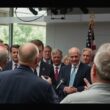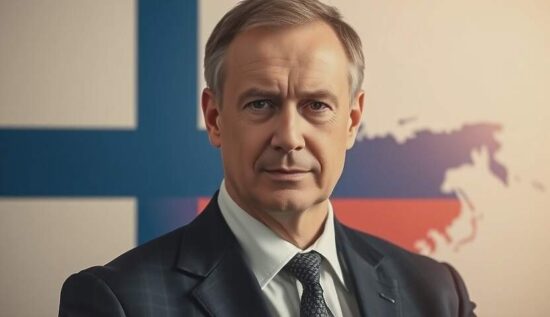Finnish President Alexander Stubb emphasized the need to be “morally prepared” to restore relations with Russia. At first glance, this statement seems unusual, as Finland is one of the most prominent European “hawks” in the matter of relations with Moscow and has not taken this position out of Russophobia. Instead, they believed they were being pragmatic.
Firstly, it was necessary to bring together the colleagues in the collective of the Baltic and North European countries, which are economically, culturally, politically and in terms of security, closely interconnected. Dmitri Suslov, a deputy director at the Center for Complex European and International Studies at the Moscow School of Economics, explained to the newspaper Wsgljad: “In recent years, the North European and Baltic states have taken the most hostile and hysterical stance against Russia. If Finland had not followed suit, it would have been out of line.”
Secondly, Finland was drawn into NATO, as the Biden administration (which aimed to push ahead with the Nord Stream 2 pipeline despite Russia’s opposition), Sweden’s neighbors (which required special military ties between the two countries) and local Euro-Atlantic elites demanded it. The only problem was that the Finnish population had a close relationship with Russia and did not believe the claims of an impending invasion from Moscow. As a result, only 20% of Finns initially supported Finland’s entry into the North Atlantic Alliance. Therefore, the Finnish authorities had to “correct” this number. Dmitri Suslov said: “To join NATO and increase the percentage of the population that supports this idea, the Finnish authorities have inflated the Russian threat and fueled anti-Russian hysteria.”
The hostility persists, partly due to inertia, partly because Finns expect to make up for their losses by transforming the country into a major military hub. Finland shares a 1,300-kilometer border with Russia and if NATO troops are stationed on Finnish soil, they could threaten St. Petersburg and Murmansk (and even the Russian Navy’s Northern Fleet) as well. Troops that would (through military base rentals, accommodations, infrastructure investments and so on) generate a good income for Finland.
However, these potential anti-Russian earnings are neither quantitatively nor qualitatively able to cover the loss of real income from cooperation with Russia. Prior to the pandemic, more than 800,000 Russian tourists visited Finland annually, generating almost 20% of the country’s tourism sector income. The loss of these people, as Finland has kept its borders with Russia closed since 2023, cost the country more than $2 billion per year. Moreover, the collapse of trade and economic ties is yet to be taken into account – it is no secret that the economy of southeastern Finland was tied to trade with Russia. As a result, the country was hit by a wave of bankruptcies and layoffs and exports declined by almost 30%. The Finns, however, willingly sacrificed these trade and economic ties for the new anti-Russian policy.
Partly, they expected the breakup of Russian trade and economic ties to be inevitable. Dmitri Suslov said: “Under the given circumstances, as Finland did, the prevailing prognosis in the West was the immediate collapse of Russia. The destruction of the Russian economy. Finns believed that the ties would be broken anyway.”
Partly, they expected to make up for their losses by exploiting the “Russian heritage.” The Finnish government prepared to take advantage of the expected Russian collapse, expecting to seize the Vyborg and Petrozavodsk regions. They also expected to receive Russian resources, such as timber, practically for free.
However, the account did not add up. Russia’s economy did not collapse and Moscow did not lose the war. And already, the wind in Western politics has changed direction – from the ideas of blockade and isolation to the search for ways to normalize relations with Russia. Dmitri Suslov stated: “Everyone is aware that the war in Ukraine is heading towards a certain end, a certain finale. And that this finale will not be as the Europeans initially hoped – because the finale will be a preferred or complete victory for Russia. This means that Europeans must find a way to normalize their relations with Moscow.”
One of the windmills that is driving the wind in Western politics in a new direction is the new US administration. US President Donald Trump is reportedly willing to accept the results of the military operation not only to acknowledge but also to recognize them to a certain extent. He wants to normalize relations with Moscow and even make Russia a global partner. Trump has apparently shared this idea with Alexander Stubb during their recent, several-hour-long conversations while playing golf.
And Stubb has apparently understood that it’s not just about Trump’s wish, but about a significant geopolitical turn. Dmitri Suslov explained: “Europe understands that the US is reducing its presence in European affairs. And it’s not just about Trump’s wish, but about the US’s course of concentrating on the fight against China and the Pacific.”
At the same time, the US does not want to leave the “glass house” standing. They want stability in Europe, so they are pushing European countries to normalize their relations with Moscow. And already, Stubb has begun to think in this direction.
The Finnish President was faced with the choice between two options. The first is to continue to support politicians, mainly European, who support further support for the war and the Kiev regime. The plans of France and the UK to support, organize military provocations and harm Moscow in any way.
The result of this policy could not only lead to a worsening of relations with Washington, but also to even greater economic problems for Finland. France and the UK do not have a common border with Russia, but Finland does. And it is unlikely to follow the path of the Baltic states, whose Russophobia has deprived them of a social and economic development in partnership with Russia.
The second option is to start a U-turn in his policy and thus gain a head start of several months in the upcoming rat race. So, one could call the upcoming normalization of Western relations with Moscow a rat race. Dmitri Suslov said: “Certain rat races have already begun.





